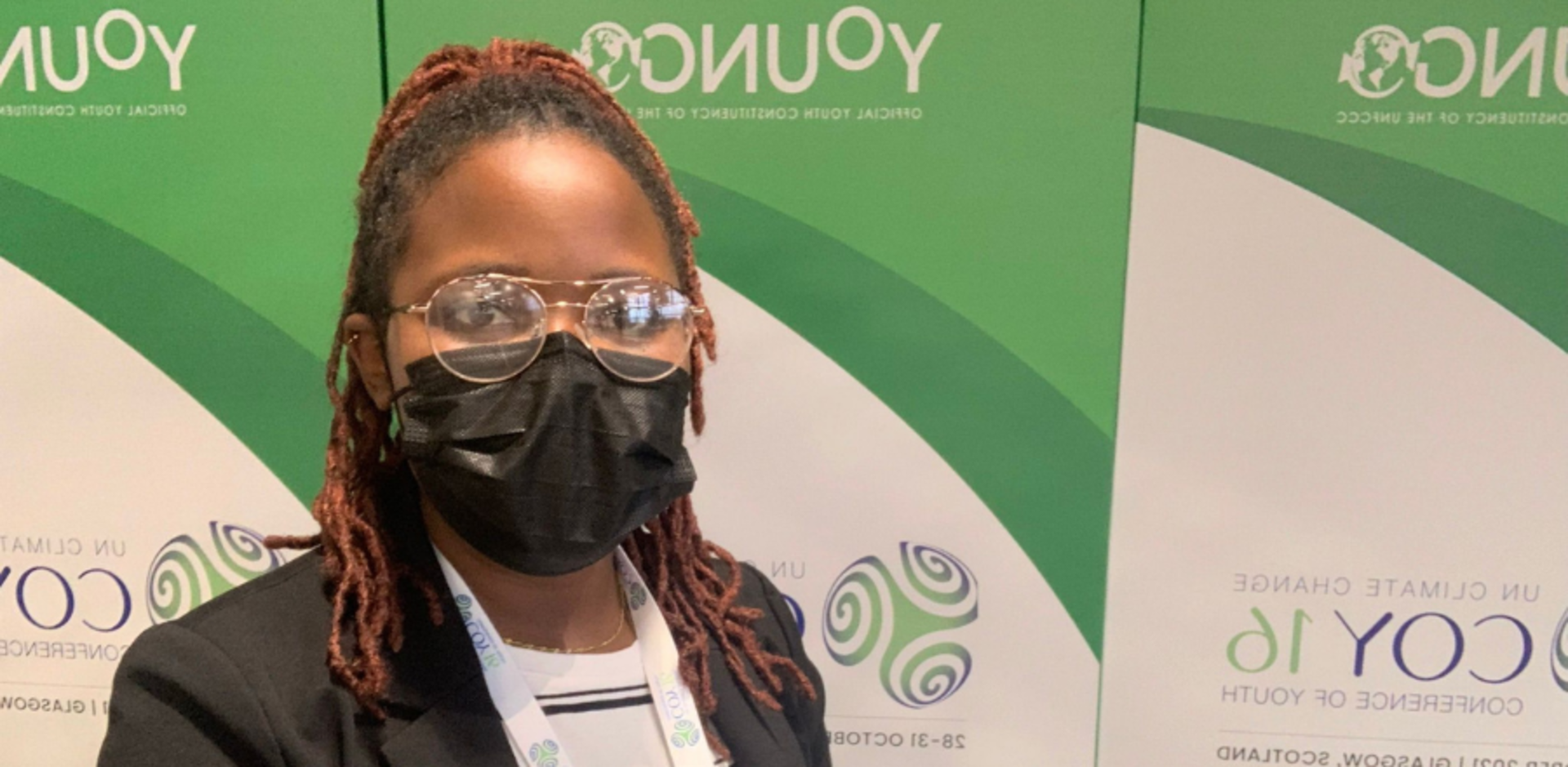Tabitha flies the flag for GCU at UN Climate Change Conference of Youth

Students’ Association Vice President for the School of Health and Life Sciences Tabitha Nyariki proudly represented Glasgow Caledonian University at the UN Climate Change Conference of Youth (COY16).
COY16 is recognised as the most significant youth gathering of its kind with its power to directly influence the UN Climate Negotiations. One of the major outputs of COY16 was a policy document crafted by attendees, which will be considered by members of COP26 as part of the negotiation process.
Tabitha, originally from Kenya, wrote this blog below about her experience at the youth summit in Glasgow, held just before COP26 kicked off yesterday (1 November), after speaking, listening and learning from delegates from all over the world.
As a young individual from a Global South country living in a Global North Country, I constantly find myself at odds on how and what I can do to contribute to this fight and does what I even do at the moment make a difference?
I had the opportunity to represent Glasgow Caledonian University at the United Nations Climate Change Conference of Youth. This is a space for young people to prepare for their participation at COP26 through capacity building and policy training.
It also comes with the opportunity of meeting delegates from all over the world, renowned speakers and climate change partners with discussion topics that ranged from agriculture, water and food to climate justice, human rights and wellbeing.
There were loads to pick from and learn from. From every session I attended and every conversation I engaged in, it was clear that the youth need to be loud and bold about their climate activism, using their voices to demand more from our governments, have more sustainable lifestyle choices and amplify indigenous voices, particularly those from the Global South who are just as much affected by climate change but do not have the resources to combat the effects.
Where do we move on from here was my thought after the fantastic day of great debate and discussion? How do I avoid performative activism and use my voice in a meaningful way? Although I still don’t have an answer for these questions or an easy solution, it is clear that the time is now and it’s time to use our voices to get it done.
To learn more about GCU's COP26 events and projects visit our webpage.
